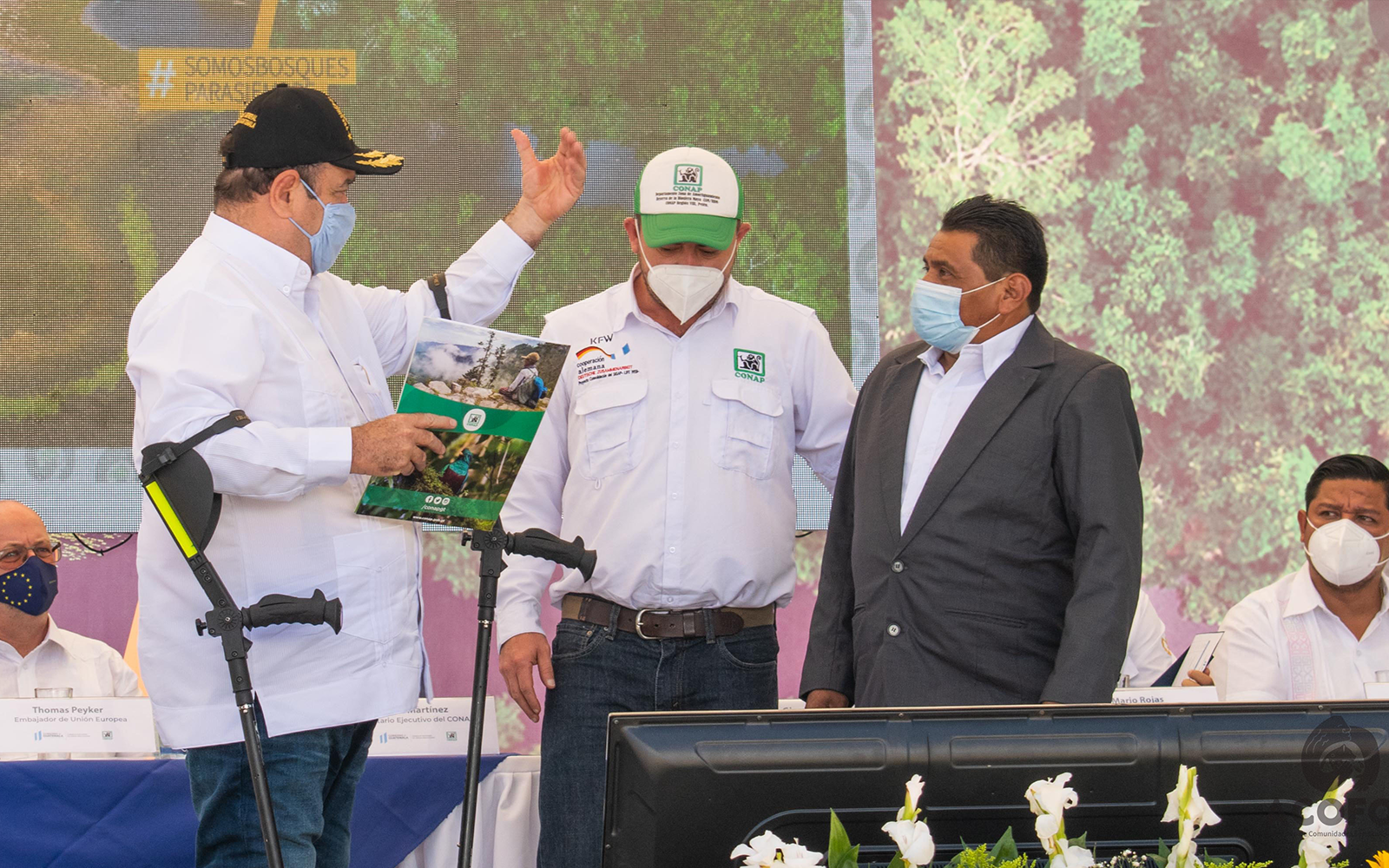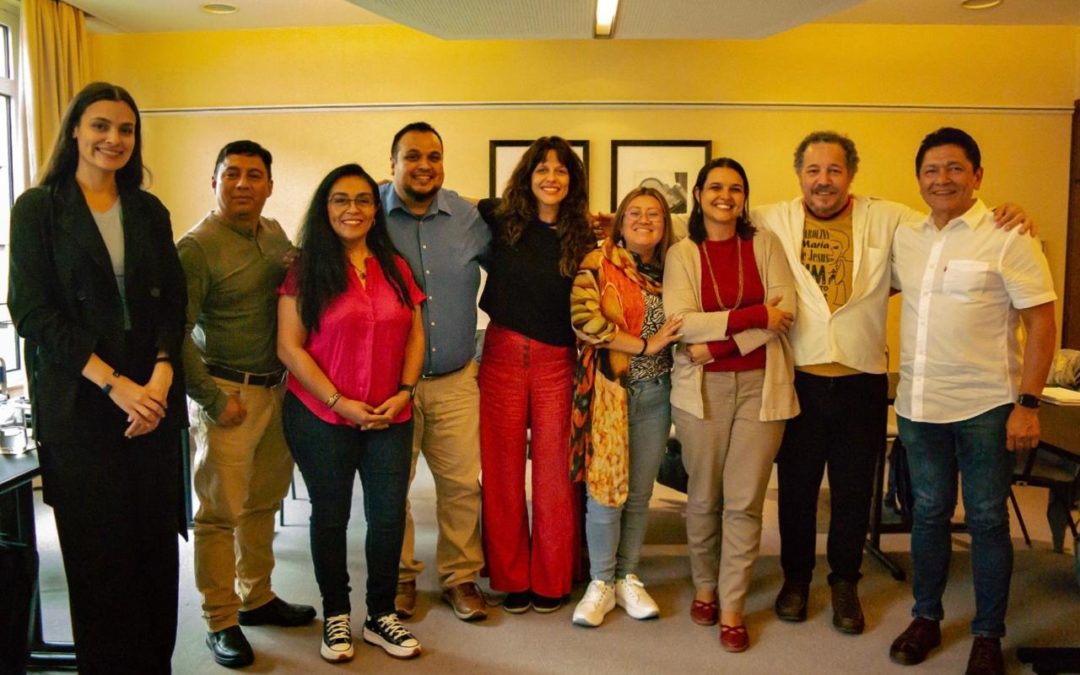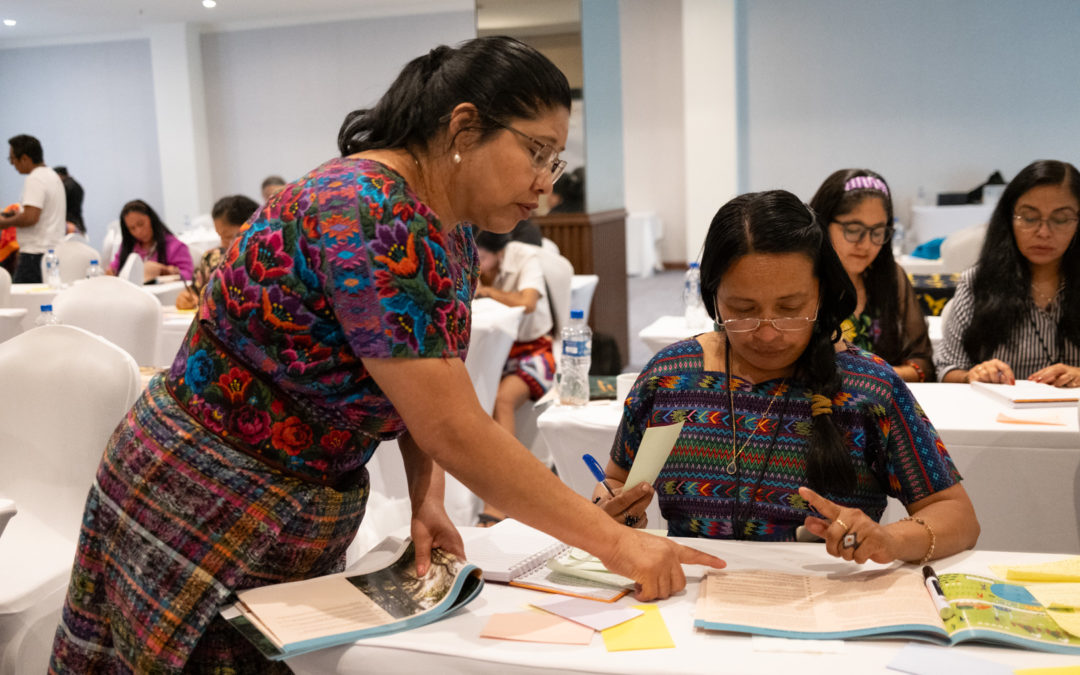Renewal will continue to benefit the sustainable management of economic and social resources, as well as the protection of the Maya Biosphere Reserve.
The Government of Guatemala, through the National Council of Protected Areas (CONAP), granted a 25-year extension to two Community Forest Concession contracts in the Maya Biosphere Reserve (MBR) in Petén, Guatemala. This will allow the reserve, its inhabitants, and the organizations belonging to the Association of Forest Communities of Petén (ACOFOP), a member of the Mesoamerican Alliance of Peoples and Forests (AMPB), to continue protecting the reserve.
The ceremony took place in the community of Carmelita, Petén, where the evaluation board unanimously declared contract extensions for Impulsores Suchitecos Civil Society and the Carmelita Cooperative as the first two community forestry concessions in Petén. The extension represents the culmination of a strict evaluation process, supported by the good practices of the community organizations in the environmental, social, financial, and administrative management of more than 6,6014 hectares of forest in the Multiple Use Zone of the MBR.
Alejandro Giammattei, President of Guatemala, recognized the incalculable value of the natural and cultural heritage of the MBR, its biological, water, and forest reserves, and national parks. “This model is one of the most successful in terms of community forest management, when you look at the heat map, you don’t see fires. For me it is a real pleasure, I committed three years ago to strengthen the concession model and provide legal certainty.”
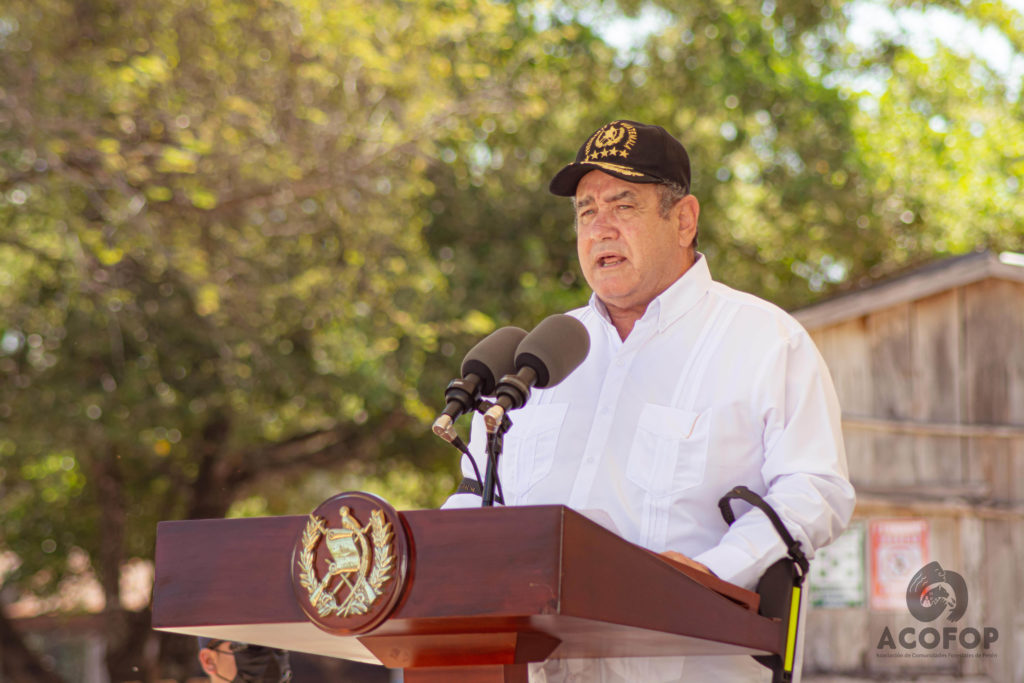
Marcedonio Cortave, president of ACOFOP, expressed his gratitude for the support of all the community men and women who are fundamental to this forestry model. “For us, it is a source of great satisfaction to be participating and celebrating this event, which gives us hope and fills us with certainty that this model that we started together with the Government of Guatemala more than 20 years ago has given very good results”.
This historic contract extension strengthens the community forestry model that has been implemented for more than 20 years by ACOFOP – AMPB and CONAP. The model is responsible for multiple environmental benefits, including the reduction of deforestation to 0.4% and the declaration of communities free of forest fires for the last 14 years.
“I want to sincerely thank you, the community members because for 25 years you have taken care of the forest and made it grow,” said Giammattei.
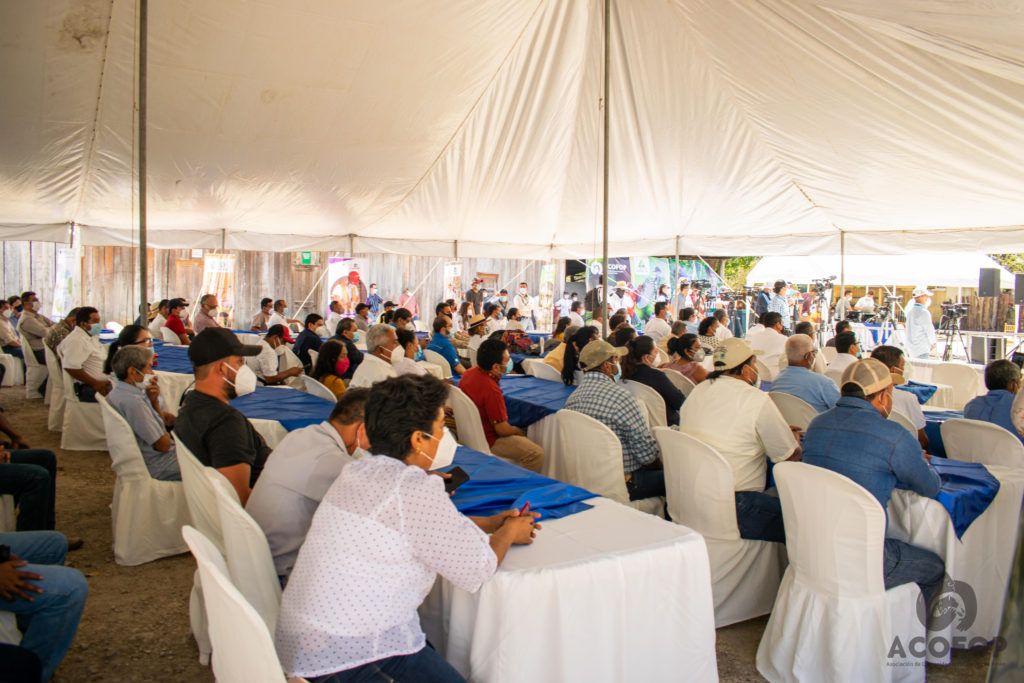
Community achievements
Among the main results achieved, the deforestation rate in the forest concessions is practically zero and a 0.1% rate of forest fires is reported in the Reserve’s concession areas. Also, community organizations have maintained exemplary management of the conflictive adjacent zone with Belize, ensuring that the forests in Guatemalan territory remain free of forest fires, illegal logging, and the advance of the agricultural frontier.
“One of the most important advantages are the economic benefits, a protected area can’t be protected if it is not providing goods and services to the communities, which, depend on them and of course Carmelita and the other concessions are a clear example,” added Cortave in his speech.
Within the socioeconomic scope of the model are the generation of thousands of jobs that contribute to the deceleration of migration and the welfare of hundreds of families, the constant reinvestment of part of the resources generated by forest harvesting that contributes to improvements in social infrastructure, education, and health in the communities; the timely payment of taxes and the development of capacities for the use of technologies in the control and surveillance of the forest.
“There are enormous results in different directions, in the social area, the human capacities of the people have been developed, the leadership of men and women, there is community infrastructure, that is to say, the people are organized. There are many important benefits,” said Cortave.
The Petén Community Forestry Model is internationally recognized for promoting forest and biodiversity conservation while strengthening local socio-economic development.
